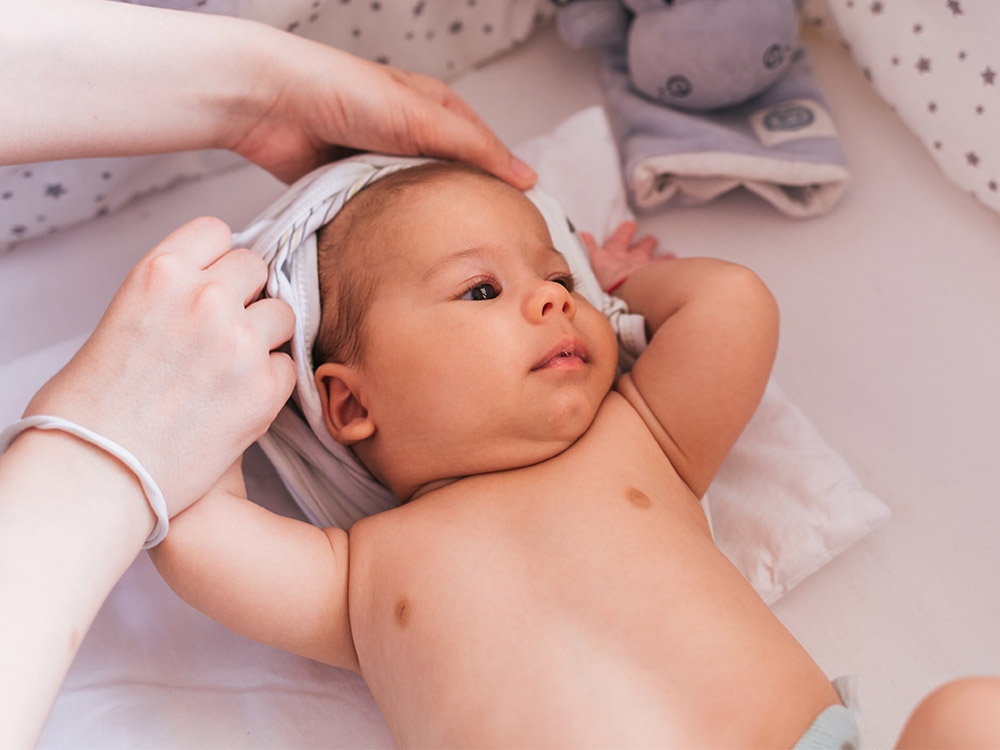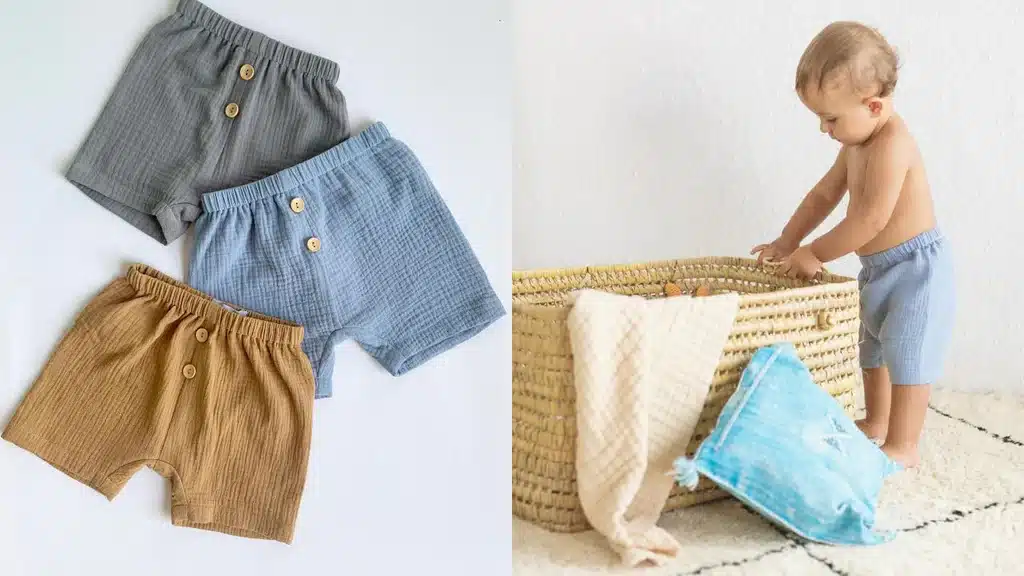When it comes to choosing the right baby clothes, parents often focus on comfort, style, and practicality. However, one of the most important considerations is selecting clothing that is gentle on your baby’s sensitive skin. Babies have delicate skin that is more prone to irritation and allergies, which is why choosing the right fabrics and clothing items is crucial. In this article, we’ll explore essential tips for selecting baby clothes that will keep your little one comfortable, happy, and safe from skin discomfort.
Understanding Sensitive Skin In Babies
Understanding sensitive skin in babies is crucial when choosing the right baby clothes. Here are some helpful tips to ensure your little one stays comfortable and irritation-free.
Understanding Sensitive Skin in Babies Babies have delicate skin that requires extra care, especially if they have sensitive skin. Understanding the nuances of sensitive skin in babies is crucial for selecting the right baby clothes. Sensitive skin refers to skin that is easily irritated by various factors. This can manifest in different ways, such as rashes, redness, or dry patches. As a parent, being able to identify the signs of sensitive skin in your baby is essential for ensuring their comfort and well-being.
Common Causes Of Sensitive Skin In Babies
Some common causes of sensitive skin in babies include allergens, such as certain fabrics or laundry detergents, and irritants like perfumes or dyes in clothing. Babies with sensitive skin may also have underdeveloped skin barriers, making them more vulnerable to environmental factors.
Identifying Signs Of Sensitive Skin In Babies
It’s important to be attentive to signs of discomfort or irritation on your baby’s skin. Look out for redness, itching, and dry patches, as these could indicate sensitive skin. Additionally, if your baby frequently fusses or seems uncomfortable, it may be due to skin sensitivity. In conclusion, understanding sensitive skin in babies is the first step in ensuring their comfort and well-being. By being aware of the common causes and signs of sensitive skin, you will be better equipped to choose the right baby clothes that are gentle and safe for your little one’s delicate skin.
Importance Of Choosing The Right Baby Clothes
Choosing the right baby clothes for sensitive skin is crucial for your baby’s comfort and well-being. Babies have delicate and sensitive skin that can easily react to harsh fabrics and materials. It’s essential to pay close attention to the type of clothing you select for your little one to prevent skin irritations and discomfort. When it comes to dressing your baby, considering their sensitive skin is of utmost importance.
Impact Of Clothing On Baby’s Skin
The type of fabric used in baby clothing can significantly impact their skin. Fabrics like cotton and bamboo are gentle and breathable, reducing the risk of skin irritation. On the other hand, synthetic materials and rough textures can lead to rashes and discomfort for babies with sensitive skin.
Benefits Of Choosing Clothes For Sensitive Skin
- Prevents skin irritation: Choosing the right baby clothes for sensitive skin can help prevent rashes and skin irritations, keeping your baby comfortable.
- Enhances comfort: Soft, natural fabrics provide a soothing and comfortable experience for your little one, allowing their skin to breathe and reducing the risk of overheating.
- Promotes healthy skin: By selecting clothes specifically designed for sensitive skin, you can contribute to maintaining the health and well-being of your baby’s delicate skin.
Fabric Selection For Baby Clothes
When it comes to choosing baby clothes for sensitive skin, one of the most important factors to consider is the fabric used. The right fabric can help prevent skin irritation and keep your little one comfortable throughout the day. In this article, we will discuss the best fabrics for sensitive skin and provide tips on avoiding irritating fabrics.
Best Fabrics For Sensitive Skin
When it comes to baby clothes, some fabrics are more gentle and hypoallergenic than others. Here are the top fabric choices for babies with sensitive skin:
- Cotton: Cotton is a breathable and soft fabric that is perfect for babies with sensitive skin. It is hypoallergenic and helps absorb moisture, keeping your baby dry and comfortable.
- Organic Cotton: Organic cotton is even better for sensitive skin as it is free from harsh chemicals and pesticides. It is grown using natural methods, making it a safer option for your little one.
- Bamboo: Bamboo fabric is known for its softness and hypoallergenic properties. It is breathable, moisture-wicking, and naturally antimicrobial, making it a great choice for babies prone to skin irritations.
- Modal: Modal fabric is made from the cellulose fibers of beech trees. It is incredibly soft, smooth, and gentle on sensitive skin. Modal is also known for its excellent moisture-wicking properties, keeping your baby dry and comfortable.
- Merino Wool: Contrary to popular belief, merino wool can be great for sensitive skin. It is hypoallergenic, breathable, and helps regulate body temperature. Merino wool also has natural antibacterial properties, keeping your baby’s skin clean and healthy.
Avoiding Irritating Fabrics
While some fabrics are excellent for sensitive skin, there are a few fabrics you should avoid to prevent skin irritation:
- Synthetic Materials: Fabrics like polyester, nylon, and acrylic can be harsh on sensitive baby skin. They are less breathable and can trap moisture, leading to discomfort and rashes.
- Wool: Although merino wool is suitable for sensitive skin, regular wool can be scratchy and irritating. It is best to avoid clothes made from regular wool if your baby has sensitive skin.
- Silk: Silk may feel luxurious, but it can be too rough for delicate baby skin. It is prone to causing allergic reactions and should be avoided for babies with sensitive skin.
- Flame-Retardant Fabrics: Some baby clothes are treated with flame-retardant chemicals, which can cause skin irritation. Look for organic alternatives that are free from these chemicals.
By choosing the right fabrics and avoiding irritating materials, you can ensure that your baby’s sensitive skin stays healthy and comfortable. Remember to always read clothing labels and opt for hypoallergenic and breathable fabrics. Your little one deserves the utmost care, even when it comes to their clothing!

Credit: raisingchildren.net.au
Considerations For Baby Clothes
When it comes to choosing baby clothes for sensitive skin, there are a few important considerations that parents should keep in mind. By opting for the right fabrics, labels, and sizes, you can help minimize discomfort and irritation for your little one. Here are some key factors to consider when selecting baby clothes.
One of the most important factors to consider when choosing baby clothes for sensitive skin is the size and fit. Clothes that are too tight can cause irritation and restrict movement, while those that are too loose can lead to tangling or slipping hazards. It’s crucial to find clothes that fit your baby properly.
- Ensure the clothes have a comfortable and roomy fit, allowing your baby to move freely.
- Pay attention to the sizing charts provided by the manufacturer and compare them to your baby’s measurements.
- Remember that sizes can vary between brands, so it’s a good idea to try garments on your baby before purchasing in bulk.
Labels and certifications can provide useful indications of the safety and quality of baby clothes. Look for baby clothes that are labeled as hypoallergenic, as they are less likely to cause allergic reactions or skin irritations. Additionally, seek out clothes that have been certified organic, as they are free from harmful chemicals and pesticides.
| Label/Certification | Description |
|---|---|
| Hypoallergenic | Reduces the risk of allergic reactions and skin irritations. |
| Organic | Free from chemicals and pesticides, ensuring a safer and more environmentally friendly option. |
To prevent discomfort and potential skin irritation, it’s important to avoid baby clothes with tight elastic bands or excessive decorations. Elastic bands can dig into your baby’s delicate skin, while decorations such as appliques and beads can pose choking hazards.
- Opt for clothes with gentle and stretchable fabrics at waistbands and cuffs instead of tight elastics.
- Avoid clothes with decorations that could detach or be accidentally ingested by your baby.
By considering these factors when choosing baby clothes for sensitive skin, you can help ensure your little one feels comfortable, safe, and happy in their clothes.
Additional Tips For Caring For Sensitive Skin
When it comes to caring for sensitive skin, choosing the right baby clothes is just one piece of the puzzle. There are other additional tips that can help minimize irritation and keep your baby’s skin happy and healthy. From choosing the right detergents and laundry practices to minimizing allergens in the environment, here are some helpful tips to keep in mind:
Choosing Detergents And Laundry Practices
When it comes to washing your baby’s clothes, it’s important to choose detergents that are specifically formulated for sensitive skin. Look for products that are free from harsh chemicals, fragrances, and dyes that can cause irritation. Opt for hypoallergenic and fragrance-free laundry detergents, as these are less likely to trigger adverse reactions. Additionally, consider washing your baby’s clothes separately from the rest of the household laundry to avoid cross-contamination with potential irritants.
Minimizing Allergens In The Environment
In addition to selecting gentle detergents, minimizing the presence of allergens in your baby’s environment can help prevent skin irritations. Keep your baby’s living spaces clean and free from dust mites, pet dander, and other potential allergens. Regularly vacuum carpets and furniture, use dust-mite proof covers on mattresses and pillows, and keep pets out of your baby’s sleeping area. Maintaining a clean and allergen-free environment can greatly reduce the risk of flare-ups and keep your baby’s skin calm and irritation-free.

Credit: www.whattoexpect.com
Frequently Asked Questions Of Choosing The Right Baby Clothes For Sensitive Skin Tips
What Is The Best Material For Babies With Sensitive Skin?
The best material for babies with sensitive skin is organic cotton. It’s soft, breathable, and hypoallergenic. This natural fabric reduces the risk of skin irritation and allows for better air circulation, keeping babies comfortable and happy.
What Should A Baby With Eczema Wear?
A baby with eczema should wear soft, breathable, and loose-fitting clothing to minimize irritation. Choose natural fabrics like cotton and avoid synthetic materials. Opt for clothing without elastic, tags, or seams that can rub against their skin. Keep them comfortable and avoid overheating.
What Is Good For Babies With Sensitive Skin?
Babies with sensitive skin benefit from gentle, hypoallergenic products specially designed for them. Use fragrance-free, mild cleansers and moisturizers that are free from harsh chemicals. It is also advisable to patch test new products and stick to clothing made from soft, breathable fabrics to minimize irritation.
What Fabrics Should You Avoid With Eczema?
Avoid fabrics like wool, synthetics, and rough materials if you have eczema. These fabrics can irritate the skin and make symptoms worse. Stick to soft, breathable fabrics like cotton and bamboo, which are gentler and less likely to trigger flare-ups.
Read more about Remedies for Baby Colic…
Conclusion
When it comes to choosing baby clothes for sensitive skin, it is crucial to prioritize comfort and safety. Opt for natural and breathable fabrics such as organic cotton to minimize the risk of irritation. Additionally, consider using fragrance-free and hypoallergenic detergents to wash the clothes.
Remember to avoid tight-fitting outfits and opt for loose, soft garments instead. By following these tips, you can ensure that your little one stays comfortable and happy in their clothing.











